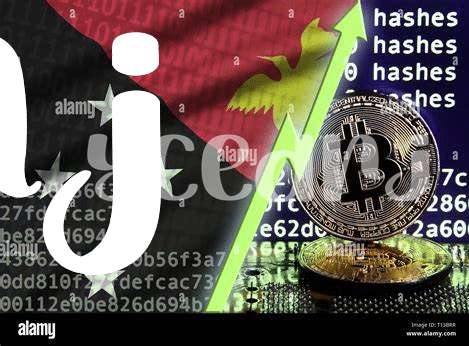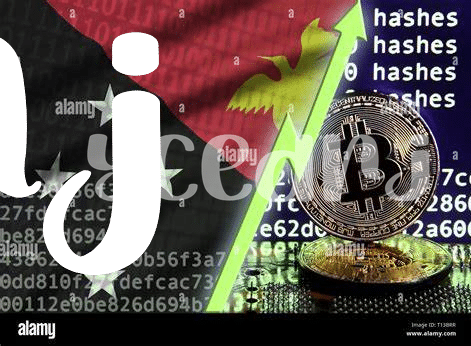History of Bitcoin 📜

In 2008, a mysterious figure known as Satoshi Nakamoto introduced a revolutionary concept – Bitcoin. The beginnings of this digital currency sparked intrigue and skepticism alike. Over time, Bitcoin gained traction among tech-savvy individuals seeking decentralized alternatives to traditional financial systems. Its underlying technology, blockchain, offered a transparent and secure method for transactions, shifting paradigms in the world of finance.
As Bitcoin’s journey unfolded, it navigated through volatile price fluctuations, regulatory uncertainties, and mainstream acceptance. The allure of borderless transactions and potential for financial empowerment captured the imagination of people worldwide. Bitcoin’s history reflects a tale of innovation, resilience, and adaptation in the ever-evolving landscape of digital currencies.
Impact of Regulations 💼
When it comes to Bitcoin, regulations play a crucial role in shaping its path within the economy. These regulations can impact the accessibility, transparency, and overall stability of Bitcoin transactions, influencing how individuals and institutions interact with this digital currency. Striking a balance between encouraging innovation and ensuring compliance is key in navigating the evolving landscape of Bitcoin within a controlled economy. As governments and financial authorities continue to establish guidelines and oversight mechanisms, the impact of these regulations on the broader adoption and acceptance of Bitcoin becomes increasingly significant. Compliance with regulations not only fosters trust and legitimacy but also helps mitigate risks associated with illicit activities and market manipulation. The evolving regulatory environment presents both challenges and opportunities for Bitcoin’s integration and acceptance within controlled economies, highlighting the intricate interplay between innovation and compliance in shaping the future of digital currencies.
Future of Bitcoin Adoption 🚀

As Bitcoin continues to gain momentum, its trajectory in the realm of adoption is poised for significant growth. With an increasing number of businesses and individuals embracing the use of Bitcoin as a form of currency, the future landscape holds promising opportunities for widespread acceptance. As more people become familiar with the convenience and security that Bitcoin offers, its adoption is projected to climb to new heights, transcending geographical boundaries and traditional financial structures. The ongoing integration of Bitcoin into various sectors and industries paves the way for a future where digital transactions are seamlessly woven into the fabric of everyday life.
Challenges in Controlled Economy 🤔

Bitcoin faces unique challenges in a controlled economy, where strict regulations and centralized oversight can hinder its growth. The central authority’s intervention in economic activities clashes with the decentralized nature of Bitcoin, creating friction and uncertainty for users and investors alike. Additionally, the lack of clear guidelines on how to navigate the regulatory landscape poses a significant barrier to mainstream adoption. Despite its potential to revolutionize the financial sector, Bitcoin must overcome these hurdles to thrive in an environment where control is paramount.
As governments around the world grapple with how to regulate cryptocurrencies, finding a balance between oversight and innovation remains a key challenge. The evolving regulatory framework, coupled with the constant need to adapt to new compliance requirements, underscores the complexity of operating within a controlled economy. Navigating through foreign exchange controls affecting Bitcoin in the Philippines, for example, necessitates a deep understanding of the legal landscape to ensure compliance and mitigate risks effectively. Embracing these challenges head-on will be crucial for Bitcoin’s long-term sustainability and success in shaping the future of finance.
Innovation in Blockchain Technology 💡
Blockchain technology continues to push the boundaries of innovation, offering secure and transparent solutions for various industries. The decentralized nature of blockchain allows for the creation of tamper-proof records, transforming the way data is stored and shared. Smart contracts, enabled by blockchain technology, automate processes and reduce the need for intermediaries, streamlining operations and increasing efficiency. Moreover, the immutability of blockchain ensures data integrity, providing a reliable foundation for applications ranging from supply chain management to digital identity verification. As blockchain technology evolves, we can expect an array of new possibilities and use cases to emerge, revolutionizing how we interact and transact in the digital age.
Potential for Global Financial Transformation 💰

Bitcoin’s potential for global financial transformation is immense. With its decentralized nature and ability to facilitate borderless transactions, Bitcoin holds the promise of reshaping the traditional financial landscape. As more countries and institutions recognize the value of cryptocurrencies, there is a growing acceptance of Bitcoin as a legitimate form of digital currency. This shift not only challenges the existing financial systems but also opens up new opportunities for global trade and investment. The transparency and security provided by blockchain technology have the potential to increase trust and efficiency in financial transactions across borders. As governments and businesses explore the use of Bitcoin, there is a real possibility of transforming the way we perceive and engage in financial activities on a global scale. Embracing this digital currency could lead to a more inclusive and interconnected financial system, offering greater accessibility and opportunities for individuals and businesses worldwide.
Foreign exchange controls affecting bitcoin in Peru are crucial in understanding the impact of regulations on cryptocurrency transactions.
